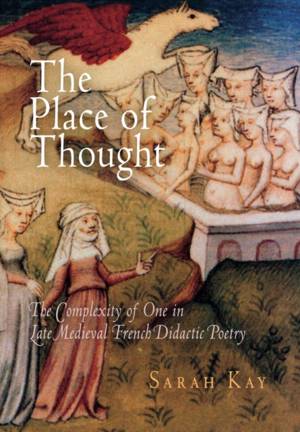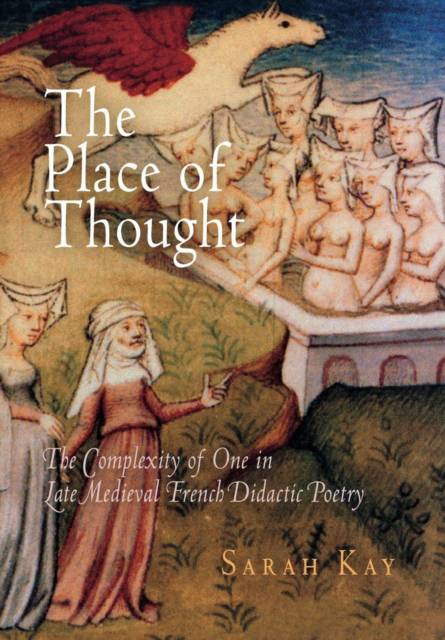
- Retrait gratuit dans votre magasin Club
- 7.000.000 titres dans notre catalogue
- Payer en toute sécurité
- Toujours un magasin près de chez vous
- Retrait gratuit dans votre magasin Club
- 7.000.0000 titres dans notre catalogue
- Payer en toute sécurité
- Toujours un magasin près de chez vous
Description
From Jean de Meun in the late thirteenth century to Christine de Pizan in the early fifteenth, medieval French poets often aimed to impart theological, philosophical, or moral ideas. To unify their thought, and to make its outline visible to readers, the poets created vivid images of place, such as gardens, paths, idyllic landscapes, cities, trees, and fountains. For Sarah Kay, these spatial images are a prop of "monologism," helping to communicate (or impose) unity of meaning and interpretation by summoning readers to occupy the same "place" in their thinking as the authors. Because of this monologism, Kay contends, didactic poetry has been ill served by a critical tradition that favors difference, plurality, and dialogism. In The Place of Thought, she seeks radically to reassess this literature and reappraise the pleasure to be derived from reading it.
Kay argues that one meaning is not inherently simpler or less interesting than many meanings. Using specific works as examples, she demonstrates that this "one-ness" of thought in French didactic poems can be an excitingly complex and challenging notion, and that it strains the images in which it is placed to the point where they become difficult to visualize. Herein lies the poems' simultaneous intellectual and aesthetic appeal. Focusing on the Roman de la Rose by Jean de Meun, the Breviari d'amor by Matfre Ermengaud, the Ovide moralisé, Pèlerinage de vie humaine by Guillaume de Deguileville's, Le Jugement dou roy de Navarre by Guillaume de Machaut, Le Joli buisson de Jonece by Jean Froissart, and Le Livre du Chemin de long estude by Christine de Pizan, Kay traces the works' backgrounds in scholastic thinking, illuminating them when appropriate with modern reflections on the same ideas.Spécifications
Parties prenantes
- Auteur(s) :
- Editeur:
Contenu
- Nombre de pages :
- 248
- Langue:
- Anglais
- Collection :
Caractéristiques
- EAN:
- 9780812240078
- Date de parution :
- 24-04-07
- Format:
- Livre relié
- Format numérique:
- Ongenaaid / garenloos gebonden
- Dimensions :
- 165 mm x 231 mm
- Poids :
- 517 g

Les avis
Nous publions uniquement les avis qui respectent les conditions requises. Consultez nos conditions pour les avis.






